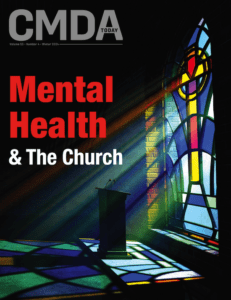Who Holds the Judges Accountable or Can We Be Good Without God?
On November 24, 2022, the National Post reported that one in six women in Canada have had an abortion, and most of them think they made the right choice and therefore do not need to repent. A mere 10 percent regret their abortion. If Christianity is true, then everyone needs the gift of repentance.
The Dr. John Patrick Bioethics Column
On November 24, 2022, the National Post reported that one in six women in Canada have had an abortion, and most of them think they made the right choice and therefore do not need to repent. A mere 10 percent regret their abortion. If Christianity is true, then everyone needs the gift of repentance. The Lord’s Prayer implies that, like food, we need repentance daily, for all our daily wrongdoings and those who refuse it jeopardize their souls and damage their lives. David Fergusson has shown that abortion is frequently a factor in depression[1]; that should not surprise us. Therefore, to be morally rational and accepting of abortion (i.e., not in need of repentance), we must believe that the life taken in abortion is not sacred. Only in the last 50 years has abortion become legally easily available, so a little meditation is overdue.
A good starting point is government and philosophy professor J. Budziszewski’s comment that we are still logical, but slowly. Where false premises have been believed logical, thought will eventually demonstrate that. Quite clearly our culture has changed its views on the sacredness of human life and the logical consequences are becoming clear; there is a slippery slope from abortion to infanticide, to euthanasia, to assisted suicide. It can change again. Read The Hand of God by Bernard Nathanson for a moving account of how an abortion crusader changed his position, not because of spiritual angst but because ultrasound data convinced him of the humanity of the unborn. In the end he became a Christian.
The title of this essay indicates where I think the major change occurred. Flannery O’Connor referred to the southern part of the U.S. as “Christ haunted,” but there is a sense in which the entirety of the Judeo-Christian West was “Christ haunted.” Not anymore. She was wise in her choice of words because most of us are not aware of how deeply we are indebted to the history that was given us, and Christ is central to that history.
Some years ago, Richard John Neuhaus wrote in First Things of a man going to a jeweler in New York desiring to purchase a cross, and the assistant (apparently innocently) asked whether he wanted a plain one or one with a little man on it. That is a breath-taking marker for our change to a post-Christian culture. Most Americans no longer have a capacity to recognize the innumerable biblical metaphors in our speech. Even the memory of the gift of starting with a biblical story to find meaning we all need in our lives has faded. In contrast, the Founding Fathers were deeply aware and grateful, particularly John Adams who described the constitution as being “for a religious people, wholly unsuited to any other.” Already, however, in that sentence the truthful word “Christian” has been replaced by the weasel word “religious.” Yoram Hazony, the orthodox Jewish founder of the National Conservative Conference, says that America was not founded by secularists, Jews, Muslims, Hindus or even Roman Catholics. It was founded by Protestants, by Christian people concerned to preach the gospel.
In the 1700s, as the American Founders thought about government, they assumed the biggest problem would be sinful pride and hubris, so they designed a separation of powers that makes government impossible without the art of compromise. They also knew central government control of daily life was impossible in such a large a country with limited communications, so much of the power would have to be exercised locally—and the doctrine of subsidiarity was born. It is illustrated in the recent abortion decision from the U.S. Supreme Court in Dobbs v. Jackson Women’s Health Organization. Maybe that is why America flourished. When French political philosopher Alexis de Toqueville came to America, he wanted to understand why America’s revolution had not been destructive like the French debacle, and one of the main factors he posited as responsible was the role of local Christian churches that taught the population week by week what the Bible says.
What we remember is not so much theological argument but narrative. We remember the stories Jesus told, such as the Good Samaritan, the Prodigal Son and so many others. These stories seeped into the American soul, creating a culture and providing a basis for the formation of virtues. Kenneth Bailey’s books clearly show how culturally challenging these biblical stories are. In years past, we knew the Old Testament stories as well as the New Testament; stories that are brutally honest. Any Jewish child, raised to know the Old Testament history of the Jews, knows that leaders are fallible. “He did evil in the sight of the Lord” is a recurrent phrase. In contrast, we now teach children that they are basically good and can do whatever they want. Utopian dreams have always been tempting, and when they enter into the whole ethos of a society, they divide and destroy because they are false. That is what communism did. We are all fallen sinners, but God’s grace is available, and failure to accept this is always destructive.
The Protestant emphasis on the Bible led to the formation of a Christian character, which is almost imperceptible by individuals but forms the entire community. Some things we will not do, while other things we feel compelled to do. Most importantly, we do without analysis. We all inhabit a tacit world that is getting smaller for reasons beyond the space of this article.
Free association is one such very important idea. People living together work out their own ways of forming society. Usually this involved a great deal of discussion and mutual respect; the rule of the people, by the people and for the people is the result and is largely not written down. It can be traced back to common law beginning about the time of King Alfred (848-899), and was codified in Magna Carta on June 16, 1215 and was further substantiated politically with the American Bill of Rights in 1789. Over 1,000 years ago when King Alfred had united the tribes to form England, traveling judges dealing with difficult cases were told to start with local ideas. The undiscussed foundations of these ideas were always biblical. Great societies have great books. They are essential to the society. Pagan societies were founded on The Book of Nature. Jews and Christians have the Bible; Muslims have the Koran; Hindus and Buddhists and their offshoots in the east all have a great book which provides a founding narrative for all their stories of meaning…pace multi-culturists, stories are not interchangeable; they are different. For example, when justice confronts a conflict between truth and loyalty, the Bible is the only great book that unequivocally puts truth above loyalty. Most other cultures put loyalty first, as most students do today.
The modern academic world cynically and foolishly says, “There is no absolute truth.” The right response to this is to ask, “Including that statement?” They refuse to honor truth but always imply they have it.
Everyone hates being the victim of a lie. Parents could not raise their children if they could not use the word “ought,” a word that implies objective moral truth. As Peter Kreeft puts it, “We are all ‘oughted.’” Ludwig Wittgenstein, more academically, says, “Ethics is a condition of man.” And here is how Arthur Leff describes the problem: “Without God as lawgiver we cannot avoid the question of who has the ultimate say. We have separated God from our legal and political systems so that every legal and political decision can only be based on human will.” Writing nearly 50 years ago, Leff could already trace the scars being left on jurisprudential writings by this growing and terrifying realization. Why did he describe this as terrifying? Because without God, law and politics are necessarily about human power and only human power.
“True freedom is not the freedom to do what you wish but the freedom to do what you ought,” as Lord Acton said, and without undeniable premises given by God we have no legitimate “oughts” upon which to build justice. Instead, we have the woke culture of mob tyranny and virtue signaling.
Currently we are witnessing the attempt to make Critical Race Theory the basis of all law without reference to God. Yet God’s will is binding, because it is His will that it be so. Under what other circumstances can anyone else withstand the question, “Says who?” or, “On whose authority?”
To quote Leff again, “We are never going to get anywhere in ethical or legal theory unless we finally face the fact that, in the words of the Psalmist, there is no one like unto the Lord. If He does not exist there is no metaphoric equivalent. No person, no combination of people, no document however hallowed by time, no process, no premise, nothing is equivalent to an actual God in this central function as the unexaminable examiner of good and evil. The so-called death of God turns out not to be just His funeral; it also seems to have affected the total elimination of any coherent, or convincing ethical or legal system dependent upon finally authoritative extra systemic premises.” This is what terrified Leff 50 years ago, and it ought to terrify us.
“Put briefly, if the law is not a ‘brooding omnipresence in the sky,’ then it can be only in one place—in us. If we are trying to find a substitute final evaluator, it must be one of us, some of us, all of us—but it cannot be anything else.” This is what happens when we refuse to say in God we trust, and we will build our society on that basis.
[1] Cambridge University Press. (2018). Abortion and mental health. https://www.cambridge.org/core/journals/psychiatric-bulletin/article/abortion-and-mental-health/33C1F97815738ADFD60A1EA04D5CB725




